| Coach | NA |
| Venue | Estádio Do Dragão |
FC Porto Trivia
FC Porto predictions
Predictions for FC Porto: See upcoming and historic predictions for FC Porto below.
Disclaimer: Past performance does not guarantee future results. Betting involves risk; only wager what you can afford to lose. Always gamble responsibly.
FC Porto Opinions
 Who is the greatest FC Porto player of all time?
Who is the greatest FC Porto player of all time?
FC Porto latest transfers
| Date | Player | From | To | Price |
|---|---|---|---|---|
| 2024-01-31 | Otávio | Famalicao | FC Porto | € 12M |
| 2023-08-22 | Otávio | FC Porto | Al-Nassr | € 60M |
| 2023-07-29 | Nico González | Barcelona | FC Porto | € 8.4M |
| 2023-07-05 | Fran Navarro | GIL Vicente | FC Porto | € 7M |
| 2023-07-01 | Diogo Leite | FC Porto | Union Berlin | € 7.5M |
| 2022-08-04 | André Franco | Estoril | FC Porto | € 4M |
| 2022-07-22 | Gabriel Veron | Palmeiras | FC Porto | € 10.5M |
| 2022-07-09 | Sérgio Oliveira | FC Porto | Galatasaray | € 3M |
| 2022-07-05 | David Carmo | SC Braga | FC Porto | € 20M |
| 2022-07-01 | Vitinha | FC Porto | Paris Saint Germain | € 41.5M |
Primeira Liga standings
| Rank | Team | MP | W | D | L | GF | GA | GD | Pts |
|---|---|---|---|---|---|---|---|---|---|
| 1 |
 Sporting CP
Sporting CP
|
27 | 23 | 2 | 2 | 79 | 27 | 52 | 71 |
| 2 |
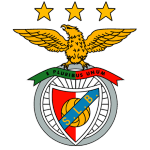 Benfica
Benfica
|
28 | 21 | 4 | 3 | 62 | 23 | 39 | 67 |
| 3 |
 FC Porto
FC Porto
|
27 | 18 | 4 | 5 | 50 | 19 | 31 | 58 |
| 4 |
 SC Braga
SC Braga
|
28 | 17 | 5 | 6 | 60 | 40 | 20 | 56 |
| 5 |
 Guimaraes
Guimaraes
|
27 | 16 | 5 | 6 | 42 | 27 | 15 | 53 |
| 6 |
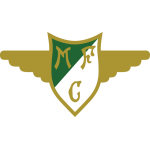 Moreirense
Moreirense
|
27 | 12 | 6 | 9 | 28 | 28 | 0 | 42 |
| 7 |
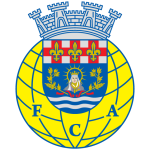 Arouca
Arouca
|
28 | 12 | 4 | 12 | 48 | 38 | 10 | 40 |
| 8 |
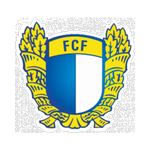 Famalicao
Famalicao
|
27 | 8 | 10 | 9 | 29 | 33 | -4 | 34 |
| 9 |
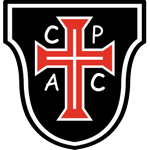 Casa Pia
Casa Pia
|
27 | 8 | 6 | 13 | 27 | 39 | -12 | 30 |
| 10 |
 Farense
Farense
|
28 | 8 | 6 | 14 | 37 | 40 | -3 | 30 |
| 11 |
 Rio Ave
Rio Ave
|
28 | 5 | 14 | 9 | 29 | 35 | -6 | 29 |
| 12 |
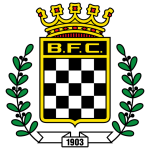 Boavista
Boavista
|
28 | 7 | 8 | 13 | 33 | 53 | -20 | 29 |
| 13 |
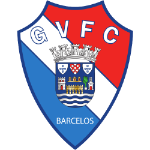 GIL Vicente
GIL Vicente
|
28 | 7 | 7 | 14 | 36 | 44 | -8 | 28 |
| 14 |
 Estoril
Estoril
|
27 | 8 | 4 | 15 | 43 | 49 | -6 | 28 |
| 15 |
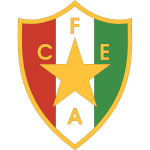 Estrela
Estrela
|
27 | 6 | 8 | 13 | 27 | 41 | -14 | 26 |
| 16 |
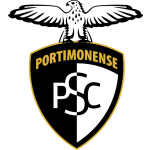 Portimonense
Portimonense
|
28 | 7 | 5 | 16 | 30 | 60 | -30 | 26 |
| 17 |
 Vizela
Vizela
|
28 | 4 | 9 | 15 | 28 | 59 | -31 | 21 |
| 18 |
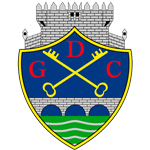 Chaves
Chaves
|
28 | 4 | 7 | 17 | 27 | 60 | -33 | 19 |
About FC Porto
Futebol Clube do Porto, commonly known as FC Porto, is a renowned professional football club based in Porto, Portugal. Established on September 28, 1893, by António Nicolau de Almeida, a prominent local wine merchant, it is one of the "Big Three" football teams in Portugal, alongside Sporting CP and SL Benfica. FC Porto is celebrated for its rich history, impressive track record, and contribution to Portuguese football.
FC Porto's home ground is the Estádio do Dragão, a state-of-the-art stadium with a seating capacity of over 50,000. The team's emblem is a blue and white dragon, symbolizing the city's historical connection with the mythical creature. The club's fans, known as 'Portistas,' are spread across the globe, reflecting the team's international appeal.
FC Porto's history is studded with numerous victories and achievements. The club has won the Primeira Liga, Portugal's top football division, more than 28 times, the Taça de Portugal (Portugal's premier knockout tournament) over 16 times, and the Supertaça Cândido de Oliveira (an annual match between the winners of the Primeira Liga and the Taça de Portugal) more than 22 times.
Internationally, FC Porto has made its mark by winning the UEFA Champions League twice, first in 1987 and then in 2004 under the leadership of the charismatic coach José Mourinho. The club also clinched the UEFA Cup (now the UEFA Europa League) in 2003 and the UEFA Super Cup in 1987.
Over the years, FC Porto has been home to many notable players who have left an indelible mark on the sport. These include Deco, Ricardo Carvalho, and Radamel Falcao, all of whom have gone on to achieve significant success in international football. The club is also known for its youth academy, which has produced talents like Rúben Neves and André Silva.
FC Porto's success is not limited to the field. The club has also made significant strides in promoting social responsibility and community engagement. It runs several social projects aimed at using football as a tool for social change, focusing on areas such as education, health, and social inclusion.
However, FC Porto's journey has not been without challenges. The club has faced financial difficulties and controversies, including a major scandal in 2008 known as 'Apito Dourado' or 'Golden Whistle,' which involved allegations of match-fixing. Despite these setbacks, FC Porto has shown resilience, maintaining its status as a formidable force in Portuguese and European football.
In conclusion, FC Porto is more than just a football club. It is a symbol of the city of Porto and a testament to the passion, talent, and resilience that characterize Portuguese football. With its rich history, impressive track record, and commitment to social responsibility, FC Porto continues to inspire football fans around the world.















